Logistics and Transportation

Last Mile, Reverse Logistics, and the New World Order in E-Commerce Delivery
How to Deliver on the Modern Consumer's Demands
According to Shopify, “a successful last mile experience makes up 53% of total supply chain costs and comes with its own set of challenges.” While challenges associated with last mile logistics are high, consumer expectations are higher. Following the global shake-up in shipping and supply chain management caused by COVID-19, consumers now expect shipped goods to arrive fast and free. This has forced supply chain leaders to innovate, pivot, evolve e-commerce methods, and deliver in ways they hadn’t before. To help business professionals better understand the shifting last mile and reverse logistics landscape, researchers working with the Advanced Supply Chain Collaborative investigated this area as society’s emerged from the pandemic.
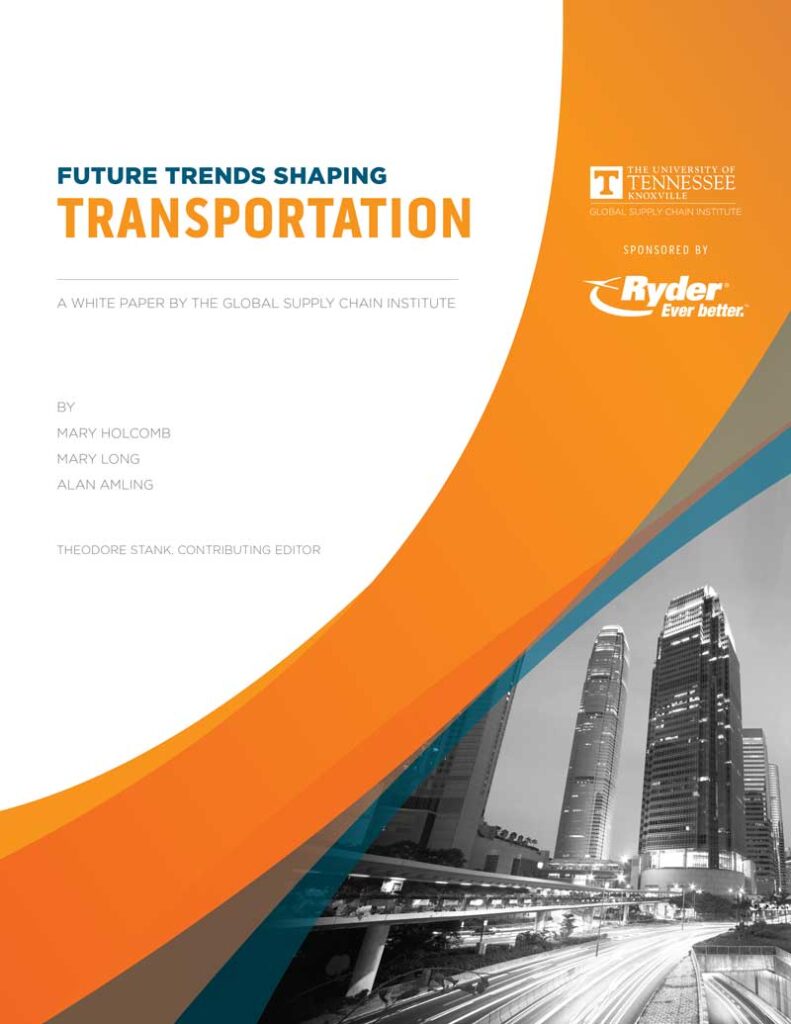
Modern Takes on Transportation in Supply Chain Management
Industry Trends for Global Supply Chain Leaders
Transportation is the chief agent of motion in global supply chains. Ensuring continuous connectivity and visibility into where products are once they’ve shipped (i.e., end-to-end supply chain visibility) is a great challenge highlighted by the COVID-19 pandemic. This white paper explores best practices, challenges, and predictions for transportation in supply chain management, as well as solutions for supply chain leaders when it comes to evolving transportation industry trends.
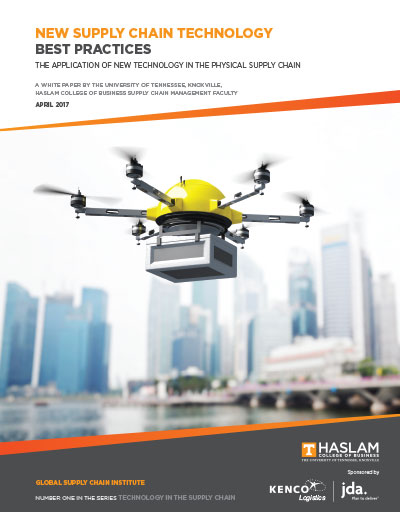
New Supply Chain Technology Best Practices
The Application of New Technology in the Physical Supply Chain
Keeping up with the latest supply chain technologies can feel like a full-time job. Understanding, adopting, and integrating the growing list of modern supply chain innovations is an even greater challenge. This white paper illustrates supply chain best practices for applying new technology advances to your physical supply chain and organizational strategy. In an era of unprecedented advances, Paul Dittmann outlines an easy-to-follow, well-researched guide for navigating innovation.
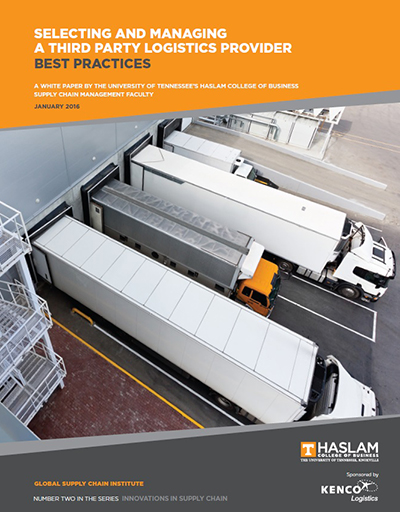
Selecting and Managing a Third Party Logistics Provider
Supply Chain Best Practices for Managing 3PL Relationships
The role of third party logistics (3PL) providers has significantly evolved beyond traditional transportation and warehousing. Today's 3PLs encompass a broad range of supply chain services. While historically, third party logistics companies focused on physical distribution and logistics, now they are seen as strategic partners offering customized solutions across the entire supply chain. This white paper serves as a checklist for addressing selecting and managing a provider as well as 3PL-related supply chain best practices.
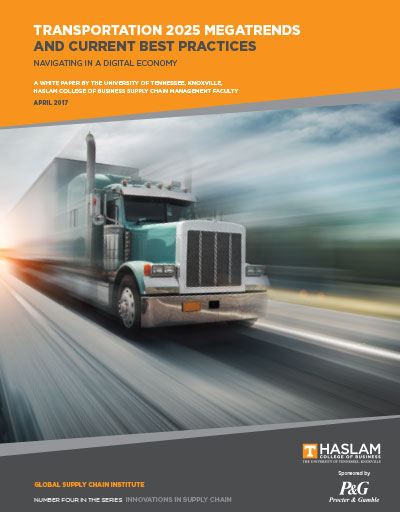
Preparing Supply Chain Leaders for Future Megatrends in Transportation
Supply Chain Best Practices in an Ever-Evolving Transportation Landscape
The transportation industry is significantly transforming as it faces a convergence of megatrends. Corresponding challenges will both affect and shape the future of global supply chains. Forward-thinking supply chain leaders recognize the importance of anticipating these changes and building the capabilities necessary to navigate them. This white paper identifies critical transportation megatrends that will redefine the industry, offering insight into the key strategies that industry thought leaders are adopting to ensure success in 2025 and beyond. Download the paper to explore these supply chain transportation insights and strategies and build a transportation framework that drives value and innovation.
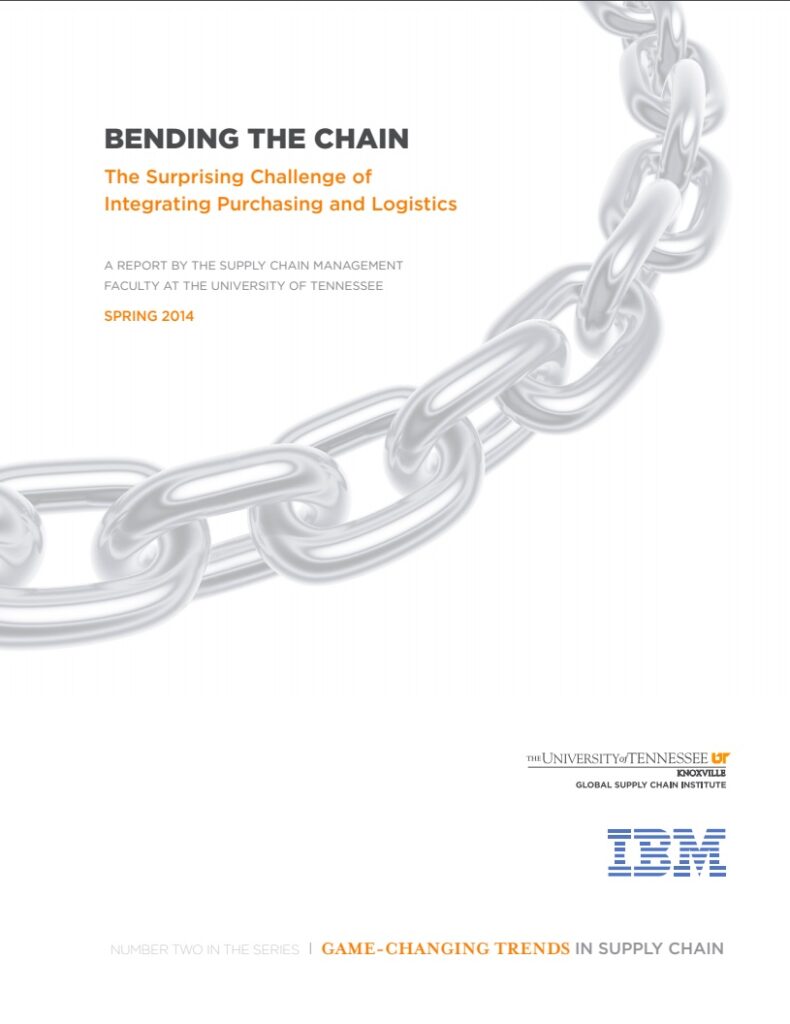
Supply Chain Management Challenges and Best Practices
How to Improve Purchasing & Logistics Supply Chain Integration in Your Organization
For decades, supply chain leaders have focused on performance issues emerging from a lack of business alignment with supply chain operations. With significant business integration improvements and systemic processes like Integrated Business Planning (IBP) and Sales and Operations Planning (S&OP), our research has uncovered a new opportunity for supply chain optimization within the traditional supply chain functions. Firms that do not align purchasing and logistics are missing an opportunity to create value. Our team worked with hundreds of companies to identify supply chain best practices your business can implement, as well as to illustrate how high performers are “bending the chain” to better align these two key functions.